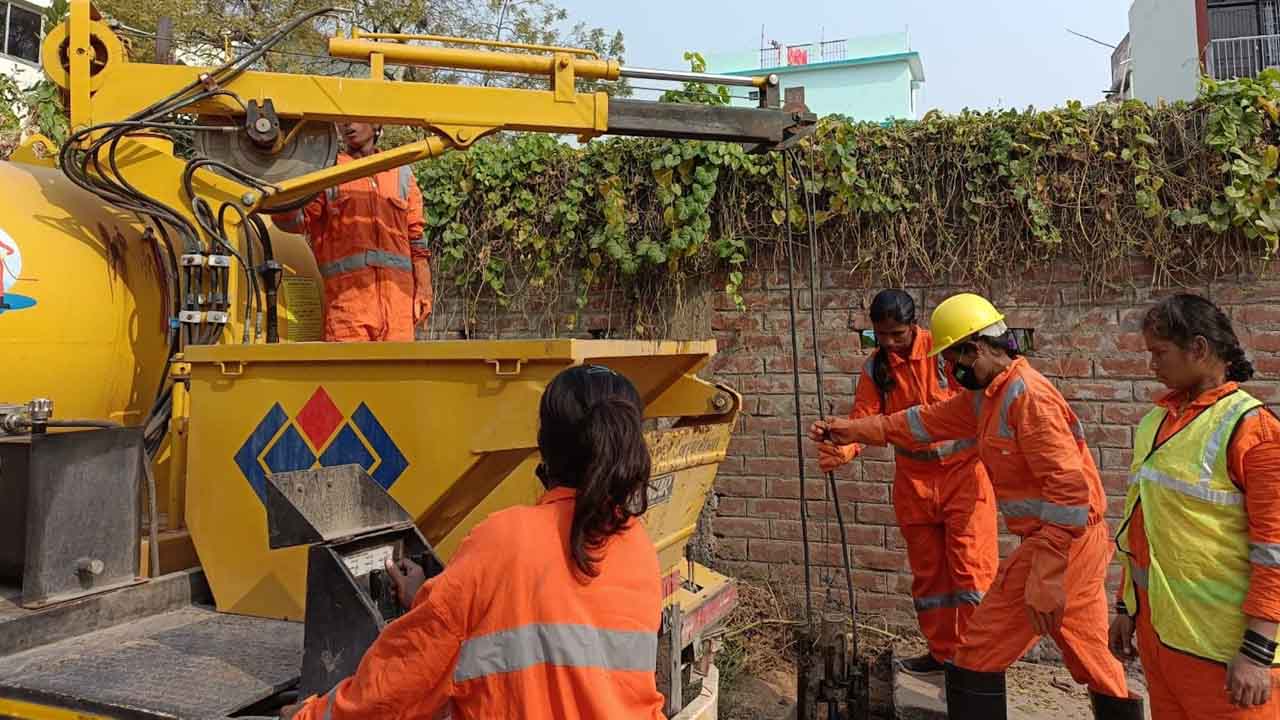Swachhangini is an initiative by Patna Municipal Corporation in collaboration with UNFPA. The objective is to eliminate the degrading and hazardous practice of manual cleaning of public sewer systems and help the women employed in the scheme to gain financial independence.
Women employed with the programme are trained to operate and drive specialized machines to clean the city’s sewers and septic tanks, helping them to make a living without endangering their lives. The Cooperative aims to lift sanitation workers and their families out of their dire circumstances and empower them with dignified, safer working conditions.
Although manual scavengers have been banned in India since 2013 under the ‘Manual Scavengers and their Rehabilitation Act, in reality, the practice still continues and manual scavengers Most of the people are from the poorest and most deprived communities of the country.
Not only is this work very laborious and discriminatory for manual scavengers, but their families also face social stigma for it.
Manual scavenging is usually done only by people from the Dalit community, which has already been the poorest and most disadvantaged section in India’s traditional caste system.
Women are most affected by being members of the sweeper community: in addition to being socially marginalized, they are at increased risk of gender-based violence both within and outside their families.
In Bihar, 40 percent of girls are married off under the age of 18, and these two already have a Dalit fertility record, a high rate of 3 children per family.
The UN Population Agency also organizes capacity building and awareness-raising sessions on the potential risks women and girls face, including gender-based and domestic violence, child marriage and lack of sexual and reproductive health services, to address these vulnerabilities.
In particular, the health of women and girls is often neglected due to extreme gender inequalities in under-served settlements and communities. Also, maternal mortality is high from early marriages and pregnancies, especially among women under the age of 24.


























